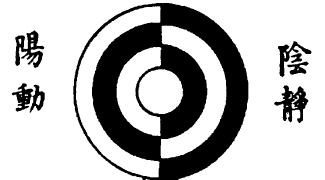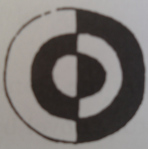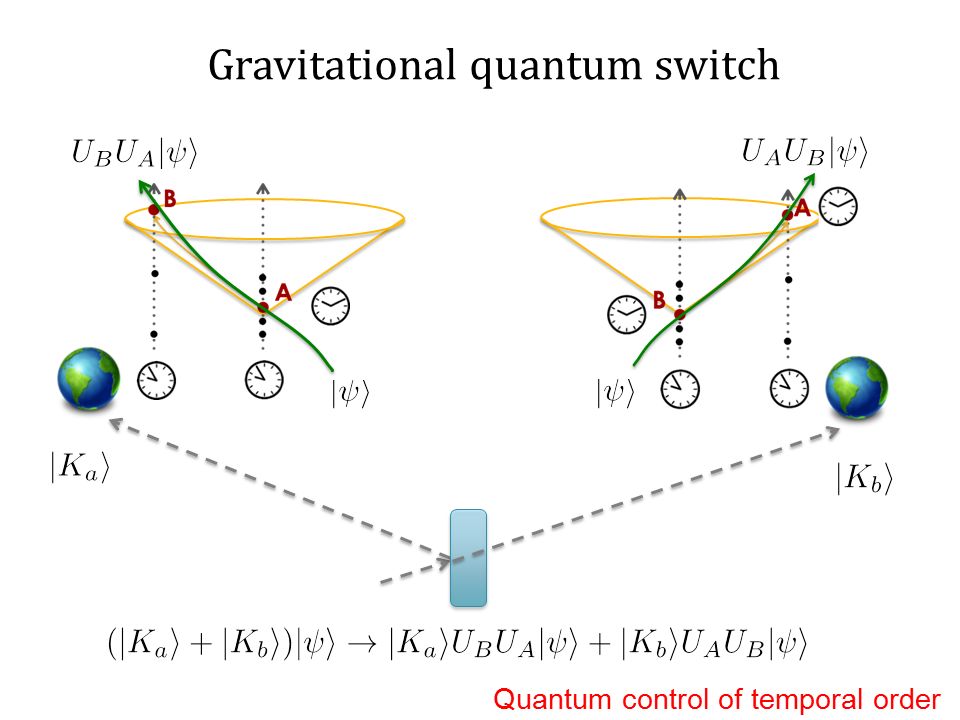Original Daoist meaning of Hundun is harmonic wisdom - as the secret of 3 in 1 unity - eternal complementary opposites. googlebook link
But an approach more in harmony with the mystical "naturalism" of the Daode jing suggests an even broader range of archaic associations and images, especially in relation to the meaning of the ideas of "one" and "three."
In Western scholarship as early as 1891, C. De Harlez remarked that hun "is generally rendered 'chaos, chaotic,' But the choice of this term is unfortunate.
N. J. Giardot
1 hour ago, Wu Ming Jen said:Void is yin yand is chaos in the negative sense
N.J. Giardot:
Here it is necessary to speak of the paradoxical idea of an "ordered chaos" since the idea of hun is not presented as an absolute chaos, disorder or confusion. Rather, as it seems manifest in these passages, there is a harmonious "order" of life and time inherent in the Daoist idea of the "chaos" before creation.
Myth and Meaning in Early Daoism examines some of the earliest texts associated with the Daoist tradition from the comparative history of religions and finds a thematic and soteriological unity rooted in the mythological symbolism of hundun, the primal chaos being and principle that is foundational for the philosophy and practice of the Dao as creatio continua in cosmic, social, and individual life. Dedicated to the proposition that ancient Chinese texts and traditions are often best understood from a broad interdisciplinary and interpretive perspective, this work when it was written challenged many prevailing conceptions of the Daode jing and Zhuangzi as primarily “philosophical” texts without any religious significance or affinity with the later sectarian traditions. While controversial and at times playfully provocative, the methodology and findings of this book are still important for the ongoing scholarship about Daoism in China and the world.
Myth and Meaning In Early Daoism
There is a lot of confusion about these very simple yet radical concepts!!Local Activity Principle - Page 394 - Google Books Result
https://books.google.com/books?isbn=1908977108Klaus Mainzer, Leon O. Chua - 2013 - Broken symmetryIn the beginning, there was simply a nothingness, an ultimate non-being (wuji) or pregnant chaos (hundun).
As I have pointed out - the Tai Chi IS the wuji and yet even Taoist "experts" get this wrong. Fortunately some know the secret.
Actually you are preaching a later Song Dynasty corruption - there was no Wu chi symbol before the Song Dynasty, just the Tai Chi symbol. I have gone into detail about this expose in my pdf and on my blog. So you are making a common error that even supposed academic experts on Neidan make! haha. Here is the response I got from Pregadio:1 hour ago, Wu Ming Jen said: Void is yin yand is chaos in the negative sense. wu chi gives birth to tai chi.
Hello,All I can say at the moment is:(1) Wuji is a stage above Taiji. It is, as you say, a "static" timeless Emptiness.(2) Zhou Dunyi 周敦頤 does not discuss this stage. He only says it is the root of Taiji.(3) In the Daoist interpretation of the “old” Taiji picture, the empty circle at the center is the Wuji.(4) The purpose is to show that, at the center of Yin and Yang, there is Emptiness.(5) This means that Yin and Yang allow Emptiness to operate (用) in space and time.(6) Unlike Neo-Confucianism, Daoism says that Wuji and Taiji are ultimately equivalent.I completely agree with you that there is a connection between cosmology and music.
Fabrizio Pregadio <fabrizio.pregadio@fau.de>
From the point of view of Wuji, there is no difference with Taiji. — From the point of view of Taiji, it is lower than Wuji.This is the mystery about which all traditions speak about.Fabrizio
Fabrizio Pregadio
Fabrizio Pregadio
5:16 PM (35 minutes ago)
I don’t know why Zong Mi shows the Taiji without the “empty circle” Maybe he wanted to show something else.

He stated that the "hub" was the Emptiness and the yin-yang then revolved around that hub.
But that is not the oldest image of the Tai Chi - it is a later Song derivation.

So here is the oldest image of the Tai Chi.
Notice the difference.
NO HUB OF EMPTINESS.
It's yin-yang all the way down.
Eternally.
https://chinesemedicalclassics.wordpress.com/tag/tai-chi/
Now last night I posted the discussion of the "later" image of the Tai Chi with the supposed hub.
The author who made that image spent his life clarifying that Wuji IS Taichi.
"The Emptiness from which existence comes forth is the central hub." p. 5
Wrong.
http://www.academia.edu/8144785/Creation_and_Its_Inversion_Cosmos_Human_Being_and_Elixir_in_the_Cantong_qi_The_Seal_of_the_Unity_of_the_Three_
Pregadio is relying on the wrong meaning of the original Tai Chi symbol.
So then Buddhists cling to Pregadio using terms that lead Buddhists to incorrectly claim Taoism is based on a static timeless origin of reality - and that immortality means a person exists in this timeless realm and then interacts from this static timeless realm into the "illusion" of spacetime.
I have explained in great detail why this is not accurate but the above image difference simplifies the argument and clarifies the error that Pregadio made. See the side bar of this blog for more details on why wuji is Taiji.
In the Theory on Yuan Qi of Taiji: "Taiji refers to the state of integrated yuan qi before the separation of heaven and earth. It is the great beginning and the great one." The state before the "separation of heaven and earth" is "wuji" which is mixed and blurry, when qi is generated and distributed to make "yuan qi integrated as one," namely "taiji."
The Mind Inside Tai Chi: Sustaining a Joyful Heart
By Henry Zhuang2015, YMAA
If you read the essay I referred to (Zhu Xi's Metaphysical System and the Role of the Taji (Great Ultimate) by Kim Han-Sang, 2013) it is quite clear Zhu Xi is emphatic that Taiji is wuji - at the same time. Not "prior." For me this completely is understandable in terms of noncommutative phase. As you state, in alchemy there is "forward" and "backward" processes at the same time as continual processes. That is noncommutative phase.
You have agreed about music theory and taoism which is my specialty. There is a very amazing cover-up of noncommutative phase in music theory. So I tried to explain this to you. But Louis de Broglie rediscovered this with his Law of Phase Harmony. So if shen is light, then when shen is turned around, then time is zero but, as de Broglie discovered, there is still noncommutative phase that is from the future - as quantum entanglement and also as reverse entropy energy.
So Zong Mi emphasized that qi, from the Zhou Dynasty character, qi means to put shen under jing or fire under water to create steam. So when the light is turned around, the shen is put under jing to create steam as reverse entropy - or qi energy that is what Master Yan Xin calls a "virtual information field." So it is the secret of reversing aging, bigu, levitation, precognition, yang shen, etc.
So in science it is now stated EPR=ER which means that 4D spacetime arises from micro quantum virtual black holes, as Noble physicist Gerard t'Hooft states (Feb. 2017). So the neidan (qigong) masters can leave their bodies at will by turning the light around, so their individual spirit merges with universal spirit, as zero time of light. Again light has no rest mass but does have a 'Hidden momentum" that is reverse entropy phonon energy - and so this is why it is stated Yuan Qi is formless and the Taiji. In other words there is continual motion of qi energy as the Taiji that is wuji at the same time. There are two time clocks - one from the future that then changes the past to harmonize the present.
Zhu Xi's Metaphysical System and the Role of the Taji (Great Ultimate) by Kim Han-Sang, 2013.
Although Zhu Xi learned of the Taiji as 'the principle of origin of the universe' from his teacher Li Tong as early as in 1161....It was under the influence of Zhang Shi that Zhu Xi came to consider Taiji in connection with Xing....Taiji is not seen as some primordial undivided material stuff or matter, but clearly is stated as being the metaphysical Dao, as well as containing all the principles of movement and quiescence, and of yin and yang....
Taiji is just the li of all things in the universe....Even before heaven and earth have yet to exist, there must first be this li.
Behind the movement and quiescence is the principle of movement and quiescence and this is what is known as Taiji.
However, the reason why the [Diagram of the Great Ultimate] talks of "Indeterminate yet the Great Ultimate" and says that "Taiji is originally wuji" is not because wuji gave birth to Taiji after wuji, or because wuji existed before Taiji.
Taiji is the metaphysical Dao ....Taiji is that metaphysical entity that is one with the world of change and regulates it while accompanying it, without undergoing change itself.
wuji serves to define the character of Taiji as without form, but characterized by the presence of principle.
Taiji as wuji is not a primordial material substance - it is also different from the Buddhist notion of emptiness. It is the ground-providing principle behind phenomena that allow transformations in the phenomenal world to occur.
and
When t’ai chi is at rest, yang and yin are united;
when t’ai chi is in motion, the two opposing forces separate. Herein
lies the secret of immortality.
17 hours ago, Kongming said:
So this pretty much sums up your wrong view of Daoism.
The standard translation "the ultimate nonbeing" (Chan, 1963; Neville 1980) or "Ultimate of Nonbeing" (Zhang, 2002) has actually reversed the Chinese word order, and renders it as jiwu - the ultimate wu.
However even within the Daoist tradition, Wang Bi's interpretation of Laozi's wuji (Chapter 28) is simply "inexhaustible" (wuqiong), and this shows clearly he did not identify wuji with wu itself.
Nevertheless, this does not mean that there was a time when Taiji did not exist....Taiji was initially boundless because its existence was beyond both space and time.
Taiji was initially just one qi, which then separated into yang and yin through motion and rest. ...it was a common view ...to regard Taiji as one qi - before yin and yang are divided.
vacuums have energy and energy is convertible into mass is to deny that vacuums are empty....vacuums are far from empty. Understood in this light, ...taiji is much more intelligble and plausible.
...Taiji, the supreme ultimate, is the absolute self-sufficient and self-contained perfection. Exactly because it is relative to nothing else, it is identical with the Boundless (Wuji).
...Taiji is simply Being itself; hence it is both supremely massive and boundless (wuji).
https://jeelooliu.net/
12 minutes ago, Wu Ming Jen said:The only thing that gets confused with primordial chaos, where we all came from and where we return is the human mind, the shinning mind never left, began or ended. Stop being silly.
Notice the qigong master who befriended me clearly describes how his mind as the "shining" mind is his spiritual ego - his self-awareness, not the yuan qi that does the healing on its own as the Emptiness:
The key is being open to listening, that's the hardest thing. If you get five seconds of focus you're doing something. You slow yourself down, to maintain your focus, breathing is an important part, if you can pull the visualization without losing the connection, then it's much easier to shift the energy. If I inhale and exhale and be more objective, not so subjectively pulled into the experience, it would be like taking a snap-shot, looking at the snap-shot, keeping it steady while I was breathing. I could then keep my focus on something for an extended period of time. All I had to do was wait and the energy would shift on its own.
So this describes the "doing" in the "non-movement" of the Yuan Shen.
The "doing" is the Yuan Qi that is also called the "golden key" of Zhong Gong.
So I'll quote again the book I was just referencing:
The "two" are separated by a chaotic void or hollow emptiness, but this void is alive with the invisible life-force of qi.
So as I point out in my pdf - the character for qi from the Zhou Dynasty - the oldest character of qi is "fire under water" or shen under jing - this is the heaven and earth that then creates qi - or in reverse - the qi is the three in one unity - the qi is always already creating heaven and earth in harmony.
This is called "noncommutative phase" -
So shen as light - in terms of Western science is a "point" - but in fact that the same time shen is also an infinite wave - that is in two places with the point. This infinite wave is momentum energy - called the "Hidden momentum" of light - that is the secret of the Yuan Qi.
So when light is turned around it has zero rest at zero time but in fact because of noncommutative phase - there is a 5th dimension that is "time-life" - it is the hidden momentum that is "relative entropy" energy or Yuan qi energy that qigong master Yan Xin calls the "virtual information field."
....the "emptiness" of the center, that third term or primordial principle (called yuanqi or hunyuan in later Daoist texts) that constantly connects all phenomenal forms, images, things with the mother.
So it is not light or "shining mind" as you incorrectly claim.
It is the empty gap of the center that allows for the original movement, sound or flow of the life-principle.



No comments:
Post a Comment